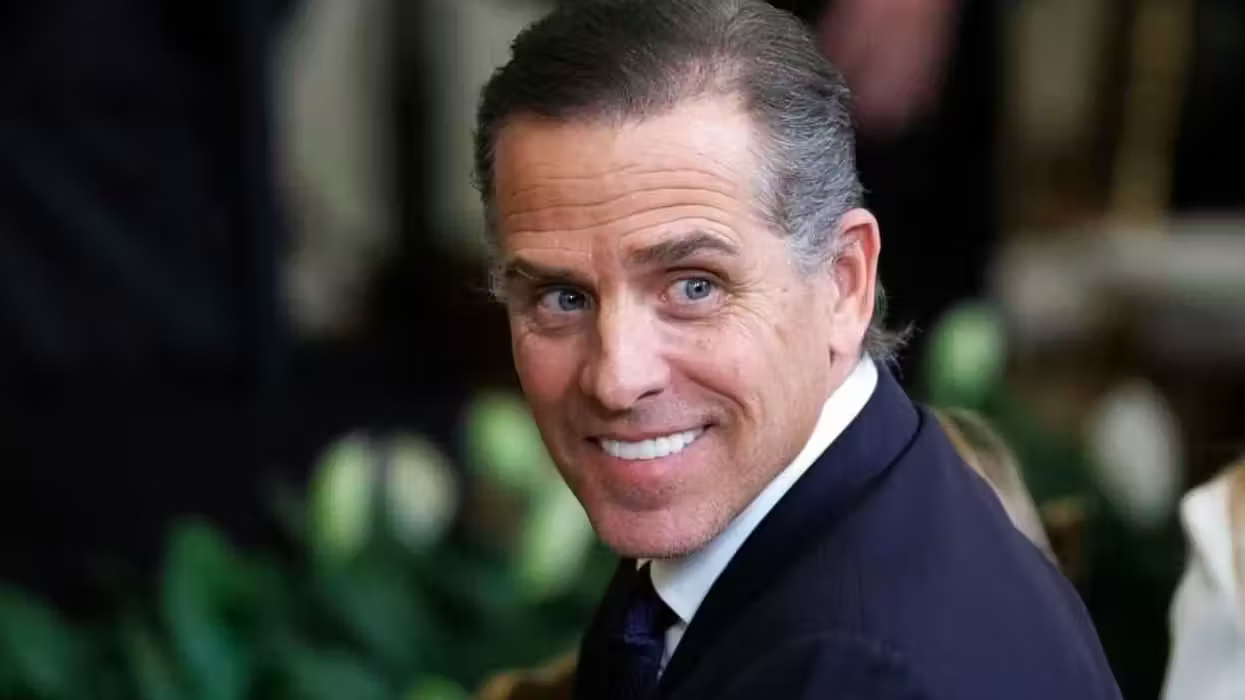
© 2025 Blaze Media LLC. All rights reserved.
They're "among the most significant health innovations of the 21st century."
Some of the world's top scientists asked the World Health Organization this week to avoid classifying e-cigarettes as tobacco products, fearing such a move would have adverse side effects for a product that they consider "part of the solution" to help curb smoking.
This news comes a month after the U.S. Food and Drug Administration proposed its first regulations on the electronic liquid nicotine devices that don't have some of the additives in traditional tobacco products that are considered harmful to health.
 In this photo illustration, a smoker puffs on an e-cigarette. E-cigarettes are being touted as a safe alternative to traditional lighted tobacco products. Studies are looking at the chemical makeup of the secondhand vapor which is breathed out like smoke. (AP/Wichita Falls Times Record News, Torin Halsey)
In this photo illustration, a smoker puffs on an e-cigarette. E-cigarettes are being touted as a safe alternative to traditional lighted tobacco products. Studies are looking at the chemical makeup of the secondhand vapor which is breathed out like smoke. (AP/Wichita Falls Times Record News, Torin Halsey)
According to Reuters, 53 scientists from several different countries sent a letter to WHO Director General Margaret Chan, calling e-cigarettes "among the most significant health innovations of the 21st century" with the potential to save "hundreds of millions of lives."
The letter was sent after WHO indicated that it would lean toward classifying e-cigarettes like tobacco products and thus would apply similar restrictions to them. Any proposed regulations could be discussed by the U.N. agency at an upcoming October meeting.
"The urge to control and suppress them as tobacco products should be resisted," the scientists wrote in their letter.
Gerry Stimson, an emeritus professor at Imperial College London who helped pen the letter, said WHO's stance on e-cigarettes, which was leaked last year, is "bizarre."
"We want to make sufficient noise now before things get too set in stone," he told Reuters.
 Wales is considering a ban on the smoking of electronic cigarettes in enclosed public places. (Peter Macdiarmid/Getty Images)
Wales is considering a ban on the smoking of electronic cigarettes in enclosed public places. (Peter Macdiarmid/Getty Images)
Earlier this month, U.S. Senators called upon the FDA to examine new research that suggests some e-cigarettes can produce dangerous carcinogens similar to those from traditional cigarettes.
The lawmakers want regulators to protect e- cigarette users and those nearby from cancer-causing vapors apparently produced by high-powered nicotine devices, known as tank systems. Two studies suggest these devices get hot enough to produce toxic chemicals like formaldehyde, a carcinogen also found in cigarettes.
The findings raise new questions about the safety of e- cigarettes, which some experts have promoted as safer alternatives to cigarettes.
Still, other studies have also suggested that they can actually help people quit smoking:
--
The Associated Press contributed to this report.
Want to leave a tip?
We answer to you. Help keep our content free of advertisers and big tech censorship by leaving a tip today.
Want to join the conversation?
Already a subscriber?
more stories
Sign up for the Blaze newsletter
By signing up, you agree to our Privacy Policy and Terms of Use, and agree to receive content that may sometimes include advertisements. You may opt out at any time.
Related Content
© 2025 Blaze Media LLC. All rights reserved.
Get the stories that matter most delivered directly to your inbox.
By signing up, you agree to our Privacy Policy and Terms of Use, and agree to receive content that may sometimes include advertisements. You may opt out at any time.





